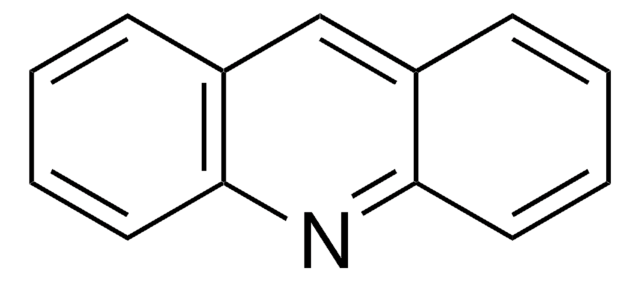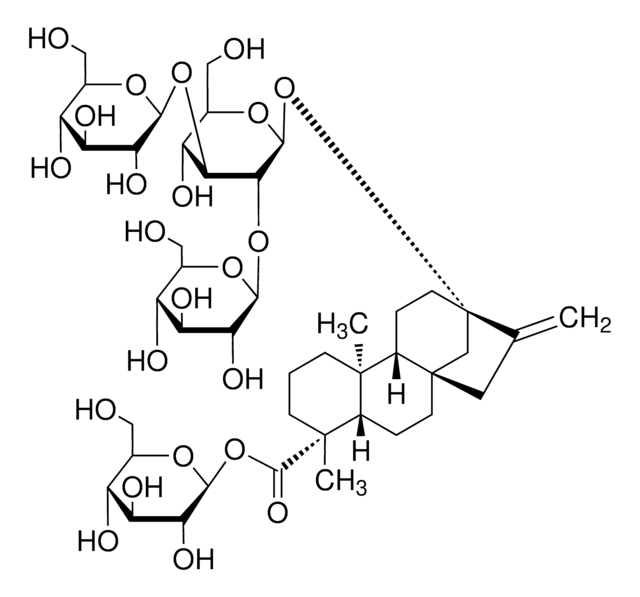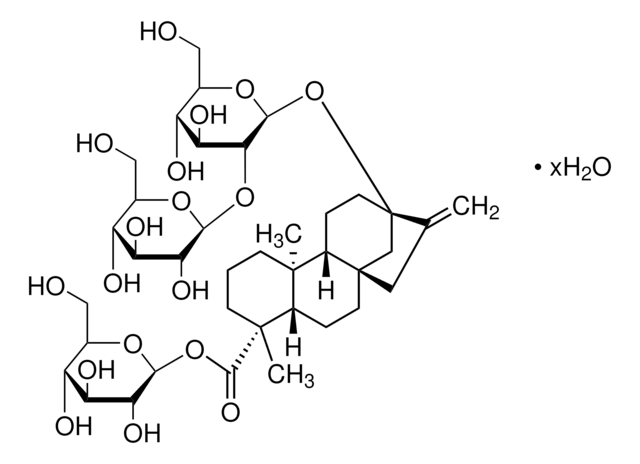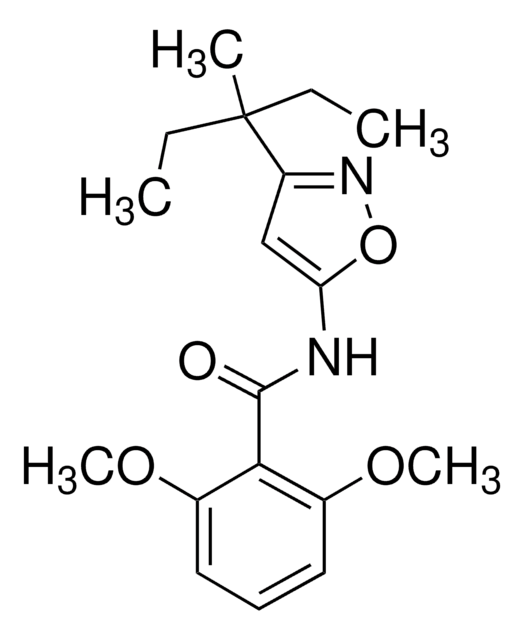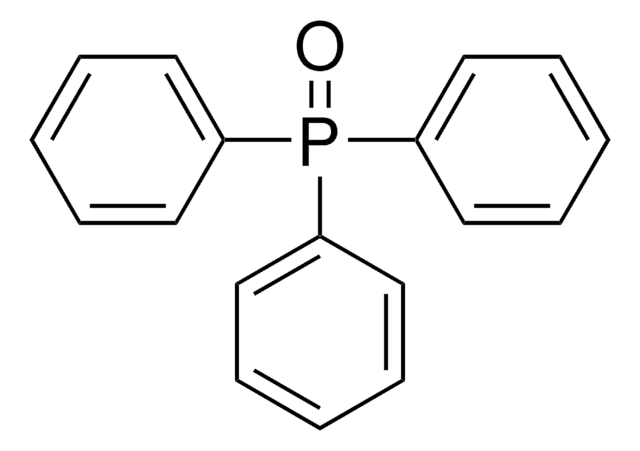01640
Acridine
BioReagent, suitable for fluorescence, ≥97.0% (HPLC)
About This Item
Recommended Products
product line
BioReagent
Quality Level
Assay
≥97.0% (HPLC)
bp
346 °C (lit.)
mp
106-111 °C
107-110 °C (lit.)
solubility
ethanol: 0.5 g/10 mL, clear (hot)
carbon disulfide: soluble
diethyl ether: soluble
ethanol: soluble
hydrocarbons: soluble
fluorescence
λex 360 nm; λem 417 nm in ethanol
suitability
suitable for fluorescence
SMILES string
c1ccc2nc3ccccc3cc2c1
InChI
1S/C13H9N/c1-3-7-12-10(5-1)9-11-6-2-4-8-13(11)14-12/h1-9H
InChI key
DZBUGLKDJFMEHC-UHFFFAOYSA-N
Looking for similar products? Visit Product Comparison Guide
Application
Analysis Note
Not finding the right product?
Try our Product Selector Tool.
Signal Word
Warning
Hazard Statements
Precautionary Statements
Hazard Classifications
Acute Tox. 4 Oral - Aquatic Acute 1 - Aquatic Chronic 1 - Eye Irrit. 2 - Skin Irrit. 2 - STOT SE 3
Target Organs
Respiratory system
Storage Class Code
6.1C - Combustible acute toxic Cat.3 / toxic compounds or compounds which causing chronic effects
WGK
WGK 3
Flash Point(F)
Not applicable
Flash Point(C)
Not applicable
Personal Protective Equipment
Choose from one of the most recent versions:
Already Own This Product?
Find documentation for the products that you have recently purchased in the Document Library.
Customers Also Viewed
Our team of scientists has experience in all areas of research including Life Science, Material Science, Chemical Synthesis, Chromatography, Analytical and many others.
Contact Technical Service